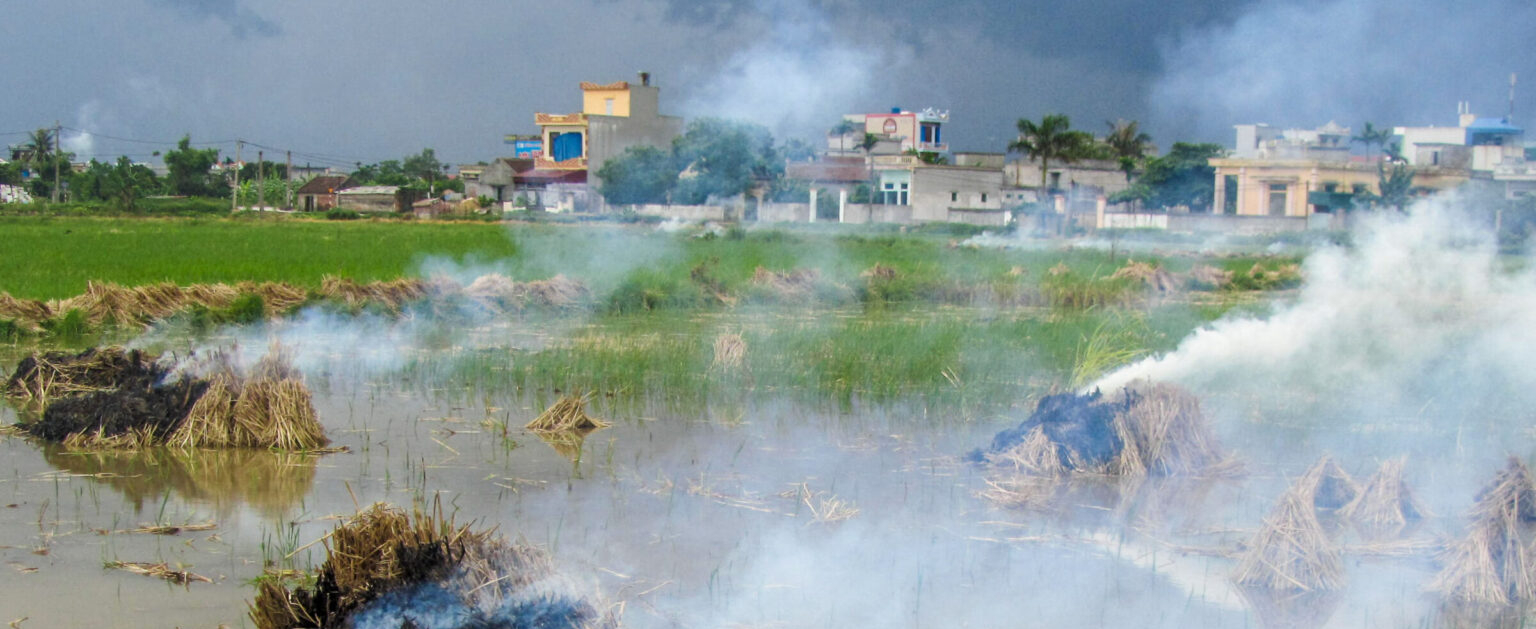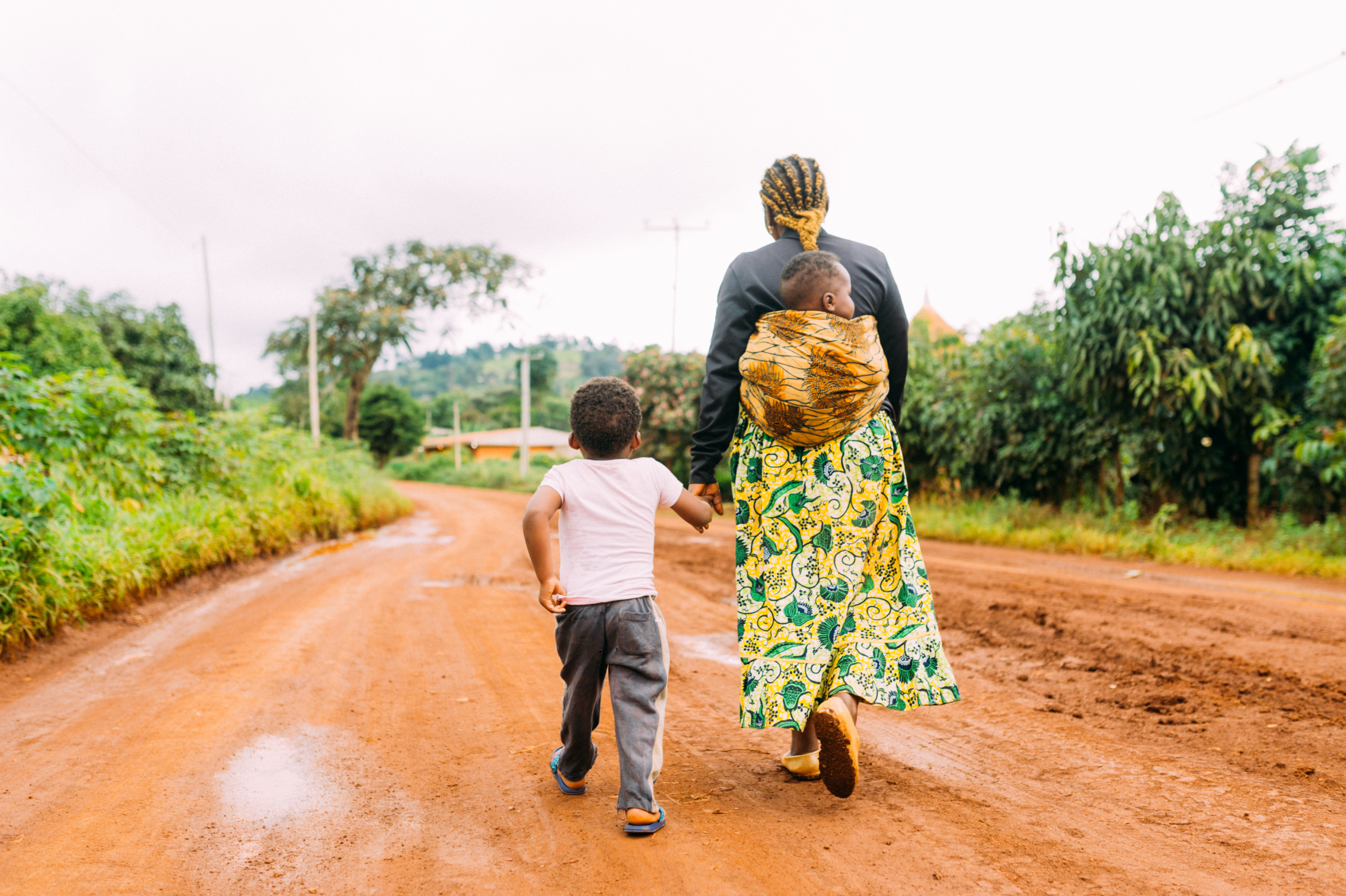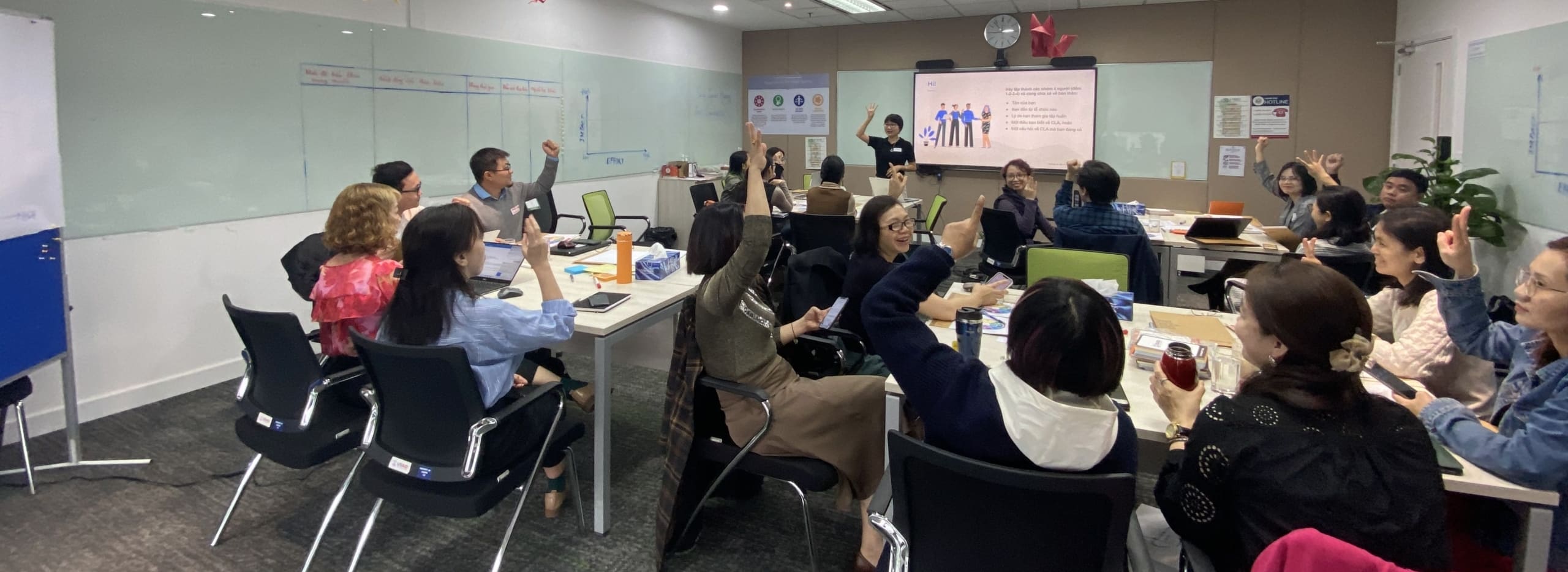By María Huerta, Social Impact Strategic Alliance Specialist, Civil Society Activity Mexico
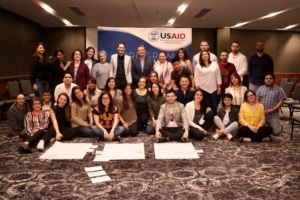
Learning Community Event in Sonora, March 2020
In the Mexican civil society sector, Civil Society Organizations (CSOs) often prefer to work independently and are reluctant to collaborate. However, when CSOs work separately on similar or intertwined social issues, they miss the opportunities provided by group efforts and synergistic projects to increase their knowledge and development impact. To address this siloing and strengthen the sector, USAID contracted Social Impact (SI) to implement a four-year Civil Society Activity (CSA) in Mexico. SI’s CSA designed a comprehensive capacity development approach that worked at the internal, external, and systemic levels to encourage collaboration and knowledge sharing among CSOs. An important part of SI’s comprehensive capacity development approach was the Learning Communities Initiative that created a mechanism for CSOs to collectively strategize, collaborate, and learn.
What are Learning Communities?
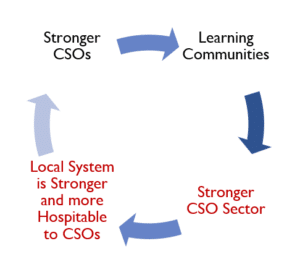 Learning Communities are groups of allied CSOs that come together to discuss topics of common interest, examine operational and programmatic questions, share lessons learned, identify opportunities to form alliances, and promote improved public understanding of the CSO sector. SI launched the initiative based on the assumption that when both the civil society sector and the communities where CSOs operate are strengthened, CSOs can reach their objectives and implement their agendas more effectively.
Learning Communities are groups of allied CSOs that come together to discuss topics of common interest, examine operational and programmatic questions, share lessons learned, identify opportunities to form alliances, and promote improved public understanding of the CSO sector. SI launched the initiative based on the assumption that when both the civil society sector and the communities where CSOs operate are strengthened, CSOs can reach their objectives and implement their agendas more effectively.
Under CSA, SI formed three Learning Communities, two of which were composed of partner organizations working on Democracy, Rights, and Governance that received grants and capacity development support from CSA. The third group was comprised of local leaders whom CSA convened and supported to develop peace-building and violence prevention projects in the states of Sonora and Coahuila.
What did we Learn?
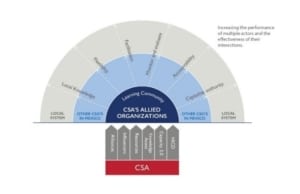
- The Approach Should be Systemic: USAID asserts that effective development outcomes emanate from increasing and reinforcing the performance of multiple actors in the same system while increasing the effectiveness of their interactions. With this approach in mind, CSA used a set of operating principles to engage with over 40 Mexican CSOs. Key among the principles was improved organizational performance which refers to a comprehensive set of solutions to improve organizational performance, and adaptation of a local systems framework where the development of organizational capacities allows CSOs to collaborate, communicate and interact with other key actors to achieve a sustained impact. CSA supported the organizations in modeling these principles in Learning Community governance and technical activities, as well as their work serving stakeholders in Mexico. To strengthen the system further, CSA ensured that the Learning Community invited private and public sector stakeholders to participate in learning events to increase the connections among groups through networking and alliance-building.
- Focus on Sustainability from the Start: For CSA, sustainability is achieved when partner organizations and their local allies are empowered to take ownership of the development process, including financing, capacity development practices, strategic alliances, Learning Community consolidation, and maintaining project results and impacts beyond the life of CSA [1]. Sustainability is more than an end-goal; it is an ongoing focus on the work with partner CSOs and has attained increased importance through the Journey to Self Reliance. As such, three of the CSA partner organizations have taken on leadership roles to sustain a Learning Community that will keep their alliances and relationships alive and relevant to their work.
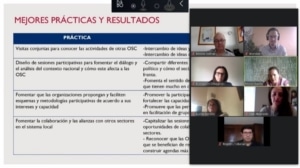
Learning Communities transfer session with allied CSOs
- Local Ownership is a Critical Success Factor: Encouraging local ownership and leadership was crucial to enable CSOs to identify common interests and derive value from their different but complimentary assets. Building local ownership of the Learning Communities, however, was not an organic nor simple process. CSA and partner CSOs had to agree on learning priorities that would generate value through Learning Community participation for every member organization. Because CSOs are different by nature, have individual mandates and missions, and face different programmatic constraints, consolidating local CSO ownership and collaboration in a context of historical CSO competition was challenging. In response, SI assumed a facilitative and less directive approach; CSA utilized participatory mechanisms to design meeting agendas where CSOs proposed relevant discussion topics and activities, rotated leadership roles, engaged their staff from junior individuals to leadership, and led their own group exercises to ensure the Learning Communities were helpful and tailored to each CSO.
Under CSA, the Learning Communities played a pivotal role in strengthening the civil society community by reinforcing existing relationships, establishing new linkages among member organizations, and identifying new alliances and opportunities for collaboration. SI’s partner CSOs have expressed a strong interest in sustaining the Learning Community groups on their own accord. CSA has documented and transferred the experience of convening these groups through a document entitled Building Sustainable Learning Communities to Strengthen the Local System that shares recommendations and lessons learned for sustaining these collaborative spaces. SI looks forward to watching the civil society community in Mexico City continue to collaborate in their own Learning Communities for years to come.
1] Project Design Sustainability Analysis Tool, USAID
Photo Credit: Brandon Fischer



